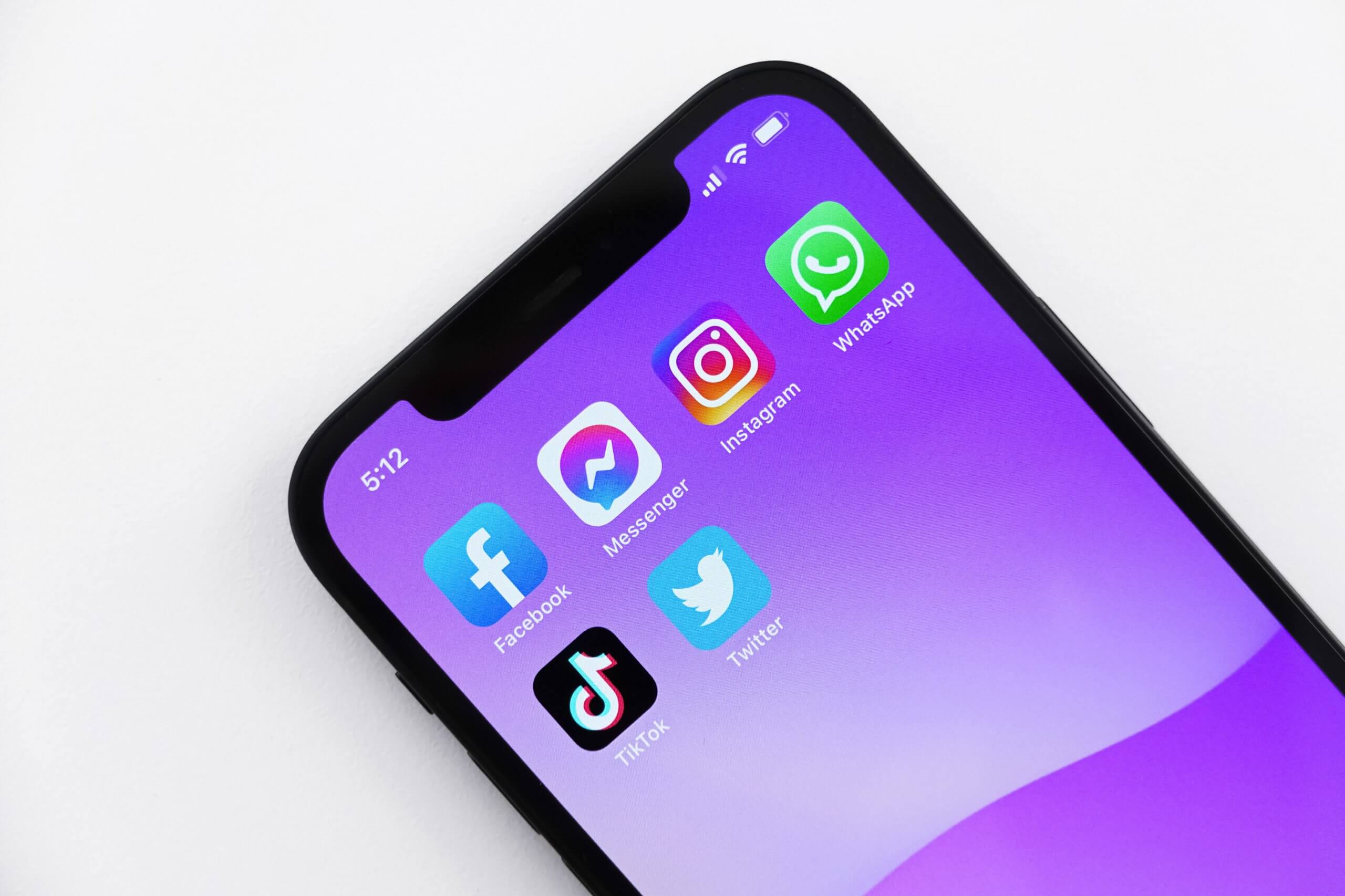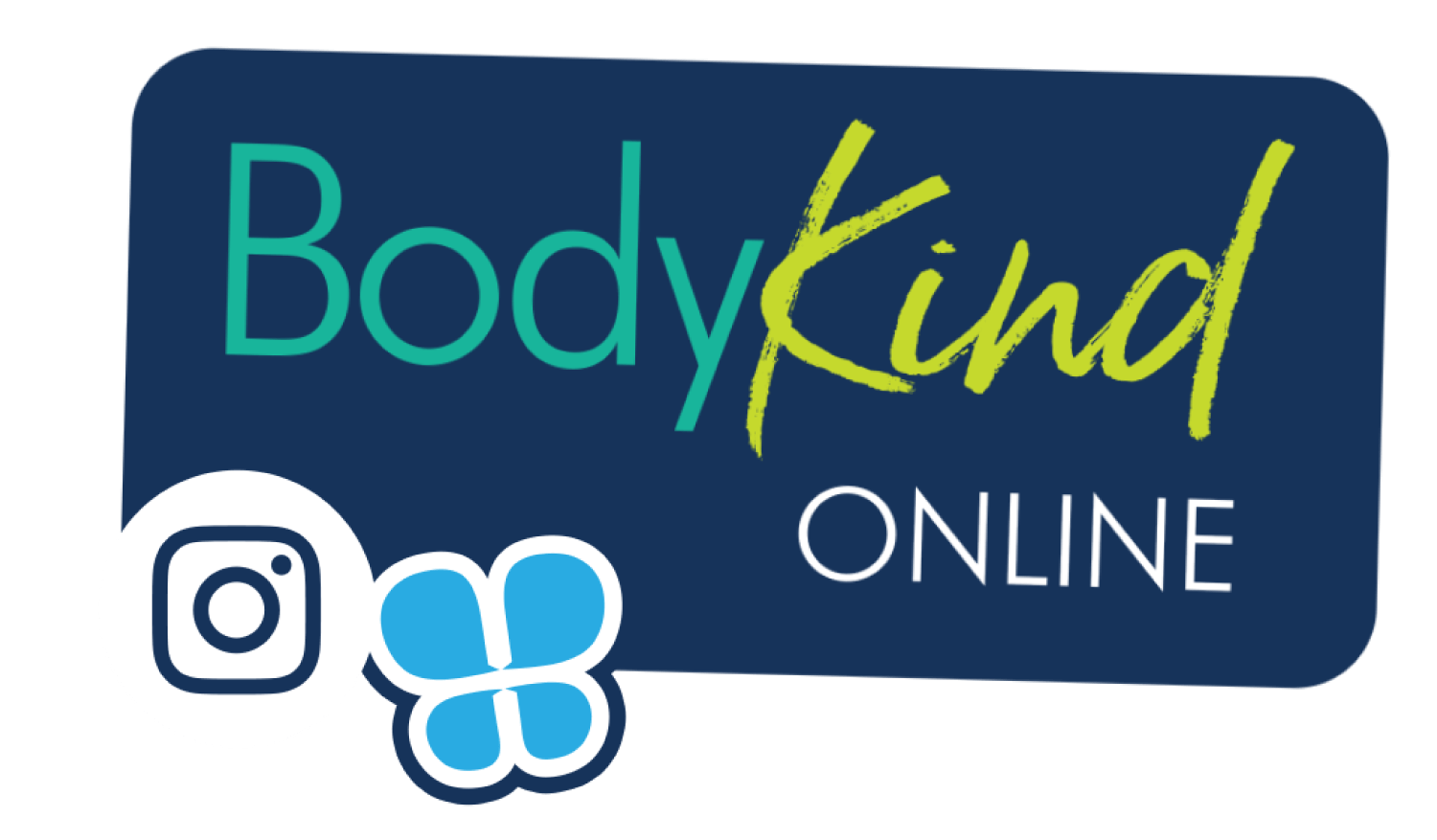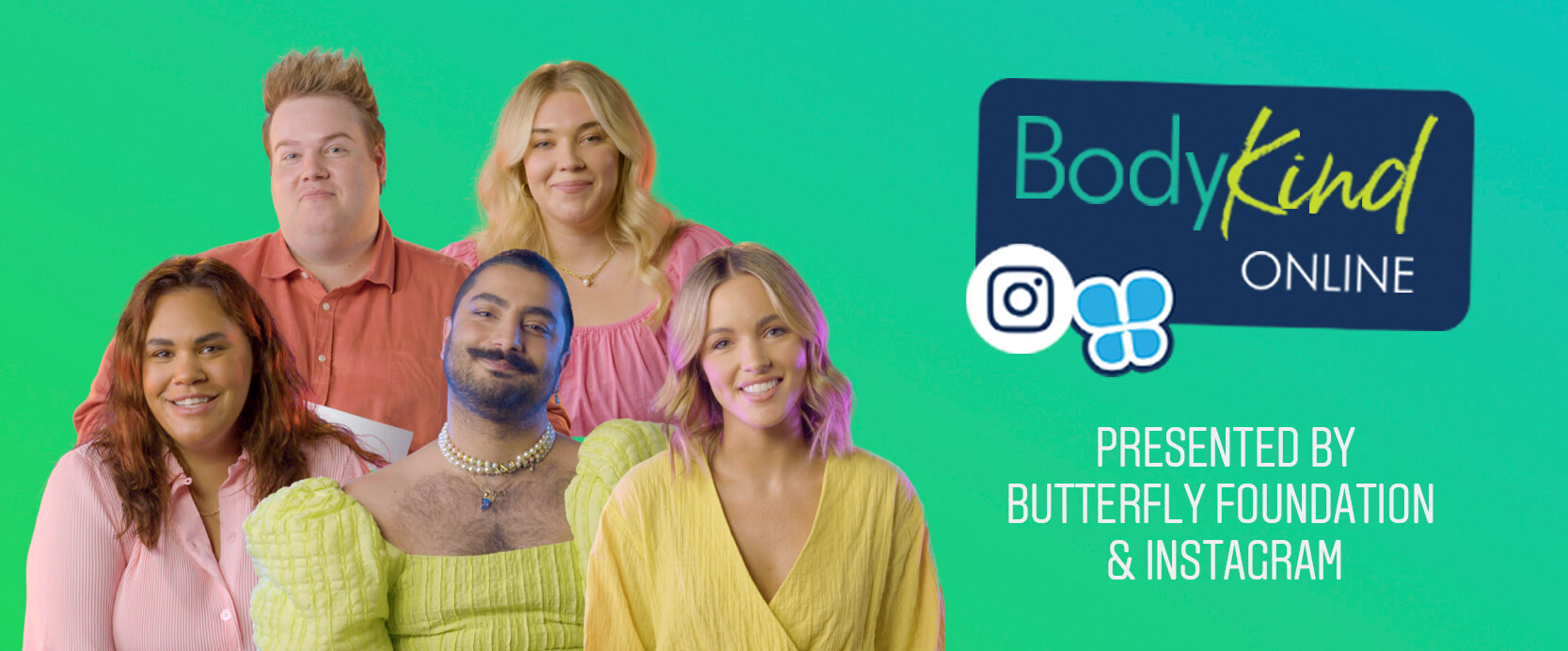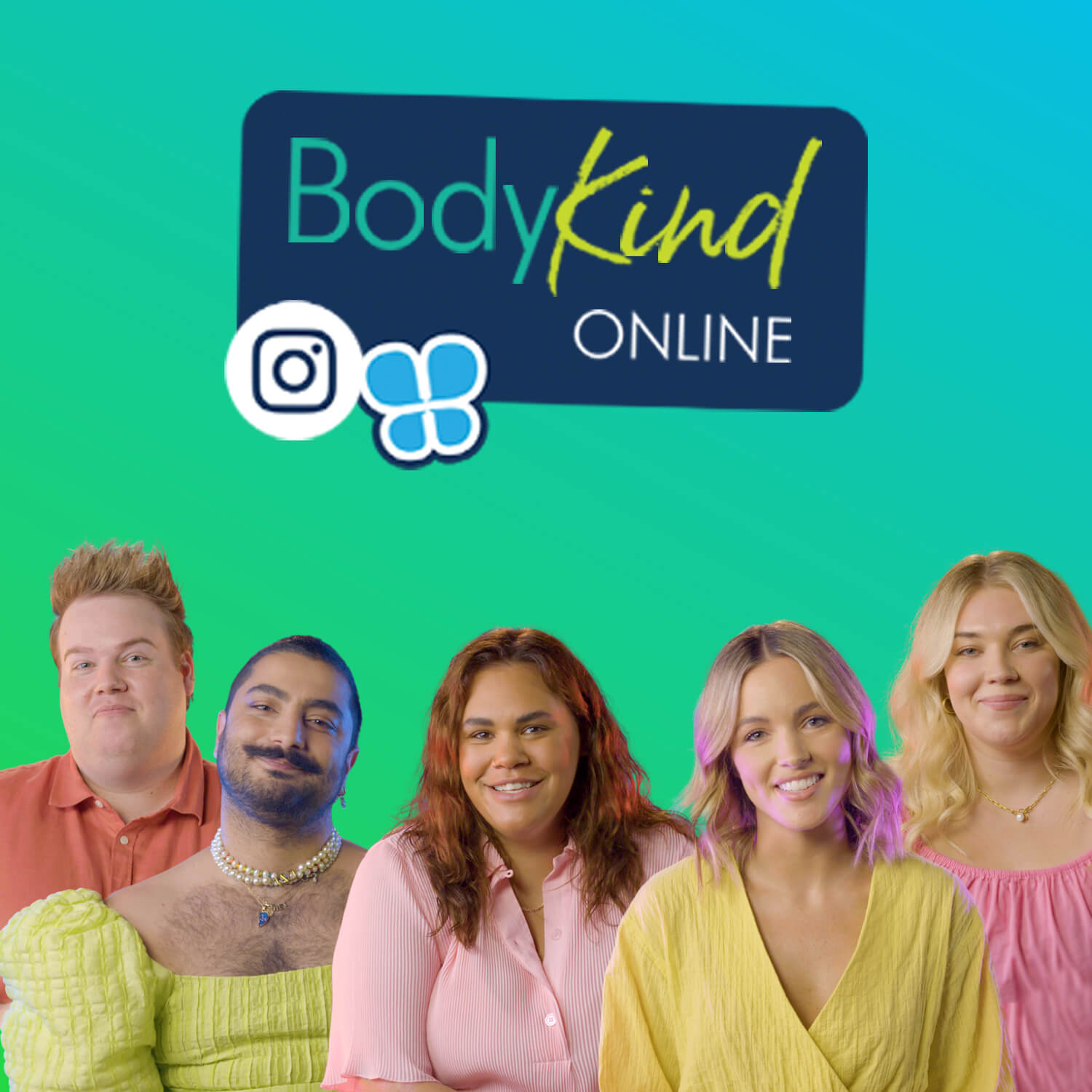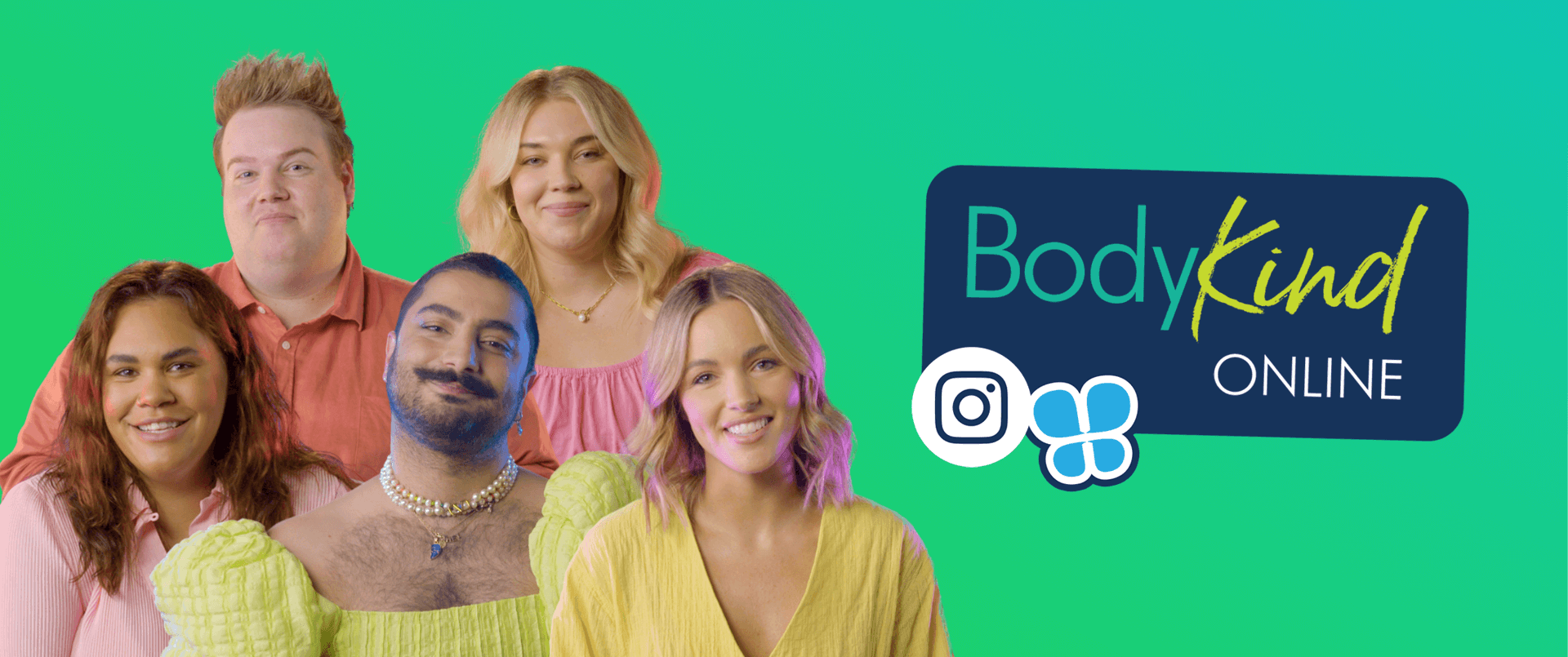
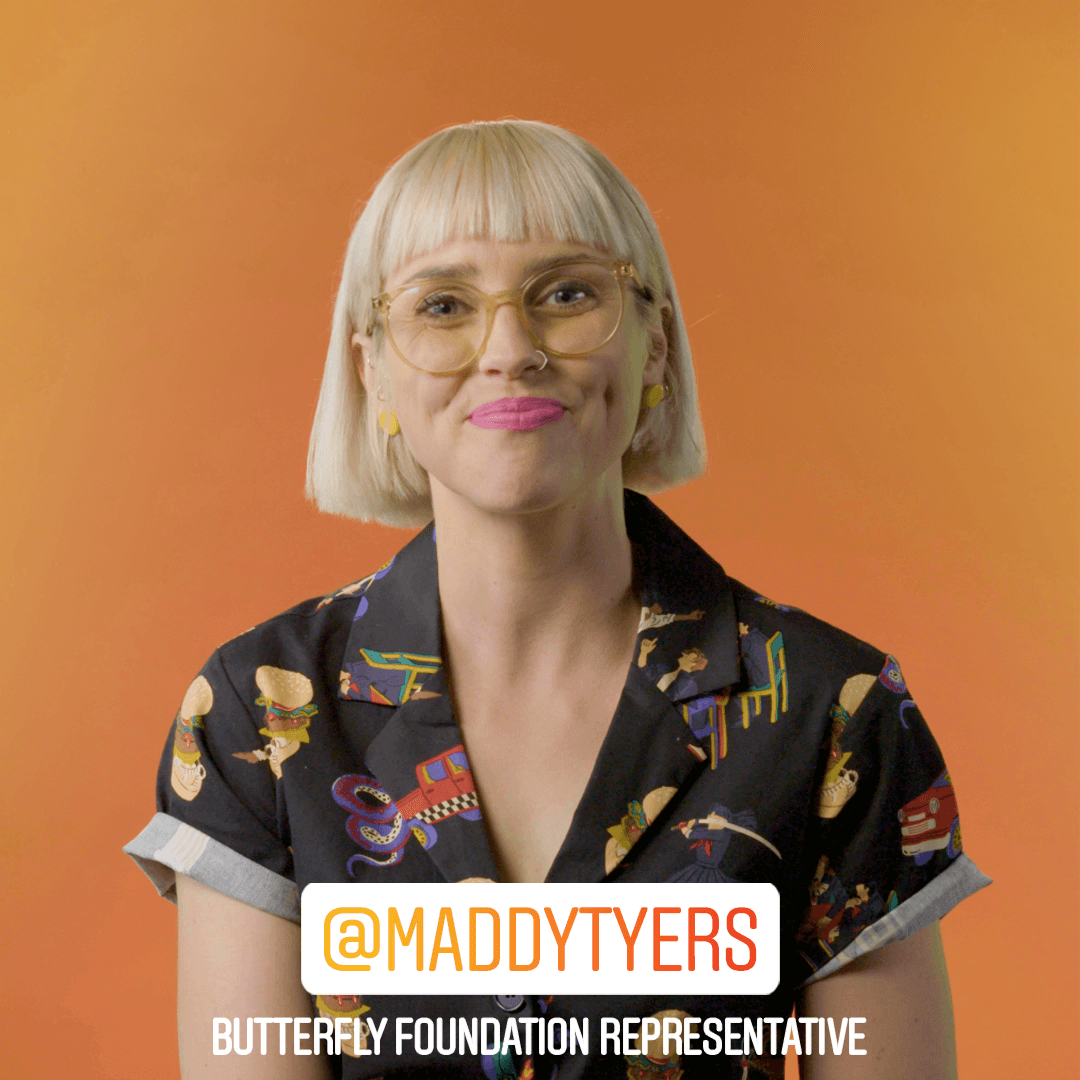
Everybody deserves kindness
Social media and its roles in promoting narrow appearance ideals and driving body comparison is a risk factor for body dissatisfaction and people not being kind to their body.
Presented by Butterfly and Instagram, #BodyKindOnline explores the intersection of body image and social media, while demonstrating the challenges people may be currently experiencing online during what has been an unprecedented time courtesy of COVID-19. Body Kind Online promotes social media literacy skills, sparks discussion and suggests actions around how we can be kinder to our own body and all bodies whilst online.
Body Kind Online Survey
To help us understand more about social media use and how it may affect people’s beliefs about themselves and their bodies, Butterfly distributed the Body Kind Online survey to our community in June 2021. Amassing almost 1000 responses, the findings demonstrated that while people’s own perception of their bodies had the biggest impact on how they felt about their appearance; social media also had a big impact on how people feel about themselves and their bodies.
DOWNLOAD THE RESEARCHVISIT US ON INSTAGRAm
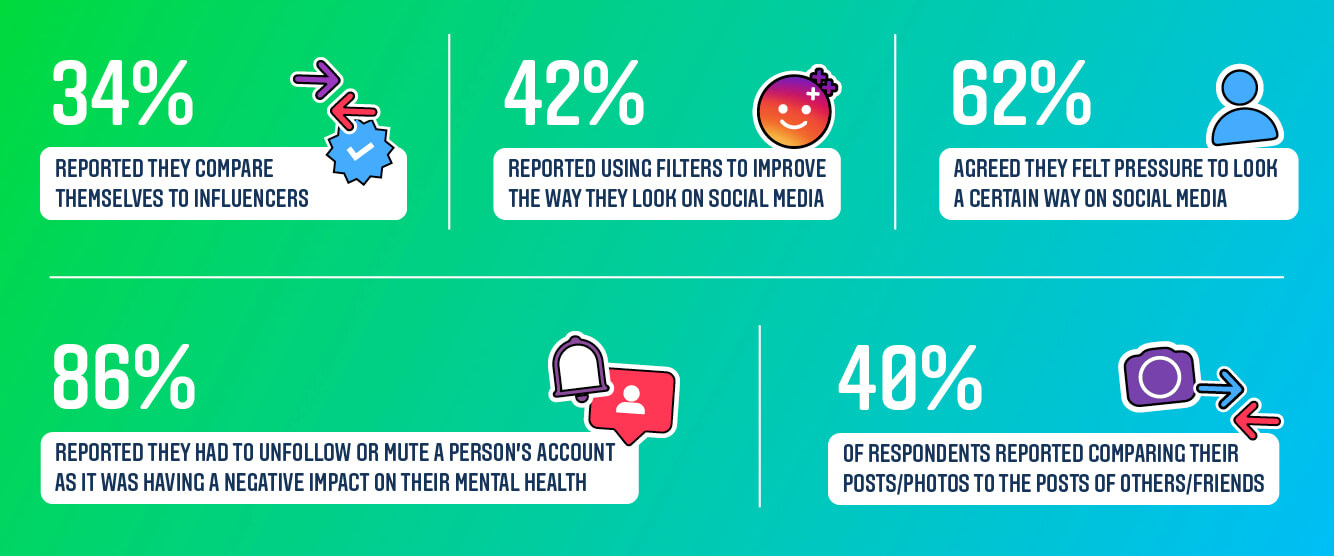
The impact of likes and comments
61% of people either ‘agreed’ or ‘strongly agreed’ that if they got a certain number of likes/ shares on social media they felt good about themselves.
Of those respondents who comment on others’ physical appearance on social media, 98% said they only post positive comments.
The obsession with feeling validated through likes and comments on social media is suggestive of broader issues at play. The societal ideal of beauty is very much engrained within us, and we need to push back against harmful diet culture rhetoric that tells us our body size and appearance defines our worth – and that we can only feel good about ourselves if we are being externally validated.
#BodyKindOnline tip
Turning off likes or comments in the app’s settings can take away the focus of hitting a certain number. Although it might seem odd at first, it’s important to remember that these online values actually have no value in real life. After a while, you might even forget they exist in the first place!
Although we might think we are being nice or supportive by only leaving positive appearance-based comments, this still sends the message that our appearance is important. The best way to comment on someone’s appearance is to not. Even if we are only leaving positive comments, particularly around body sizes and weight, we don’t know what we are praising – it could be an eating disorder or chronic/physical illness.
Comparing yourself to influencers
34% of respondents reported most frequently wishing to look like an influencer.
45% of respondents had made changes to their appearance to look like the person they wished to look like. This was more common in people with a lived experience of an eating disorder.
Typically speaking, it is easier for young people to compare to the perfect, flawless and idealised image presented on social media, as they may not have the social media literacy to understand that what they are viewing is not a true representation of reality or how the person in the image is actually feeling.
#BodyKindOnline tip
Social media is mostly a highlight reel, and we rarely see someone’s worst day promoted online. Remember that the heavy use of digital manipulation, filters or selection of the perfect shot all help to present the version of reality that someone wants others to see!
Using filters
42% reported using filters to improve the way they look on social media
66% of respondents believed the people they follow use filters ‘often/always’ to improve the way they look
Using filters to distort or alter appearance has never been easier and our research highlights that many people believe they need to use filters to improve the way they look. Additionally, although some respondents were aware that photos had been heavily edited, this did not change the fact that the images made them feel bad about themselves.
#BodyKindOnline tip
Avoid using filters that distort body shape or appearance features and resist the temptation to try these “even just once” to see what they look like. If you are someone who uses filter frequently try to reduce their use over time.
Social comparison
40% of respondents reported comparing their posts/photos to the posts of others/friends
63% ‘agreed’ or ‘strongly agreed’ it was important to them how other people perceived their appearance online
There is a strong link between making appearance-based comparisons and body dissatisfaction, particularly when one compares themselves to idealised body types on social media.
#BodyKindOnline tip
If you are taking a photo of yourself, avoid taking multiple photos and instead treat your phone like a film camera – one snap is all you get! Photos are meant to be merely a snippet of time and don’t have to be perfectly constructed. If you find yourself taking 100 of photos to get the perfect shot, try reducing this over time.
Taking photos of things that aren’t related to your body or appearance can also reduce pressure. What are your other hobbies? Share this with your online following – not every photo has to be a selfie. Doing so can also give you a break from worrying about your appearance, how many likes you get, or what people will say about your image.
Curating your feed
86% of respondents reported they had previously had to unfollow or mute a person’s account that they were following as it was having a negative impact on their mental health
53% of respondents reported they had stopped using a social media platform as it was having a negative impact on their mental health
An important message that emerged from the findings in this survey was that social media would be experienced more positively if there was greater focus on other aspects of people’s lives, rather than the overriding reduction of individuals to their bodies.
#BodyKindOnline tip
Research says by exposing yourself to more diverse and larger bodies, it can lead to a ‘recalibration’ of what is considered healthy and ‘normal.’ Diversify your feed. Follow people who look like you and who don’t look like you. Follow people who showcase diverse bodies and follow people who disregard editing and applying filters to their photos.
Use the tools provided in your favour. If a friend is posting content that upsets you, use the mute button – they won’t know! Other tools include blocking accounts and using nudges to remind yourself to take a break from scrolling. It’s okay to put the phone down and have a break.
Asking creators the tough questions about being #BodyKindOnline
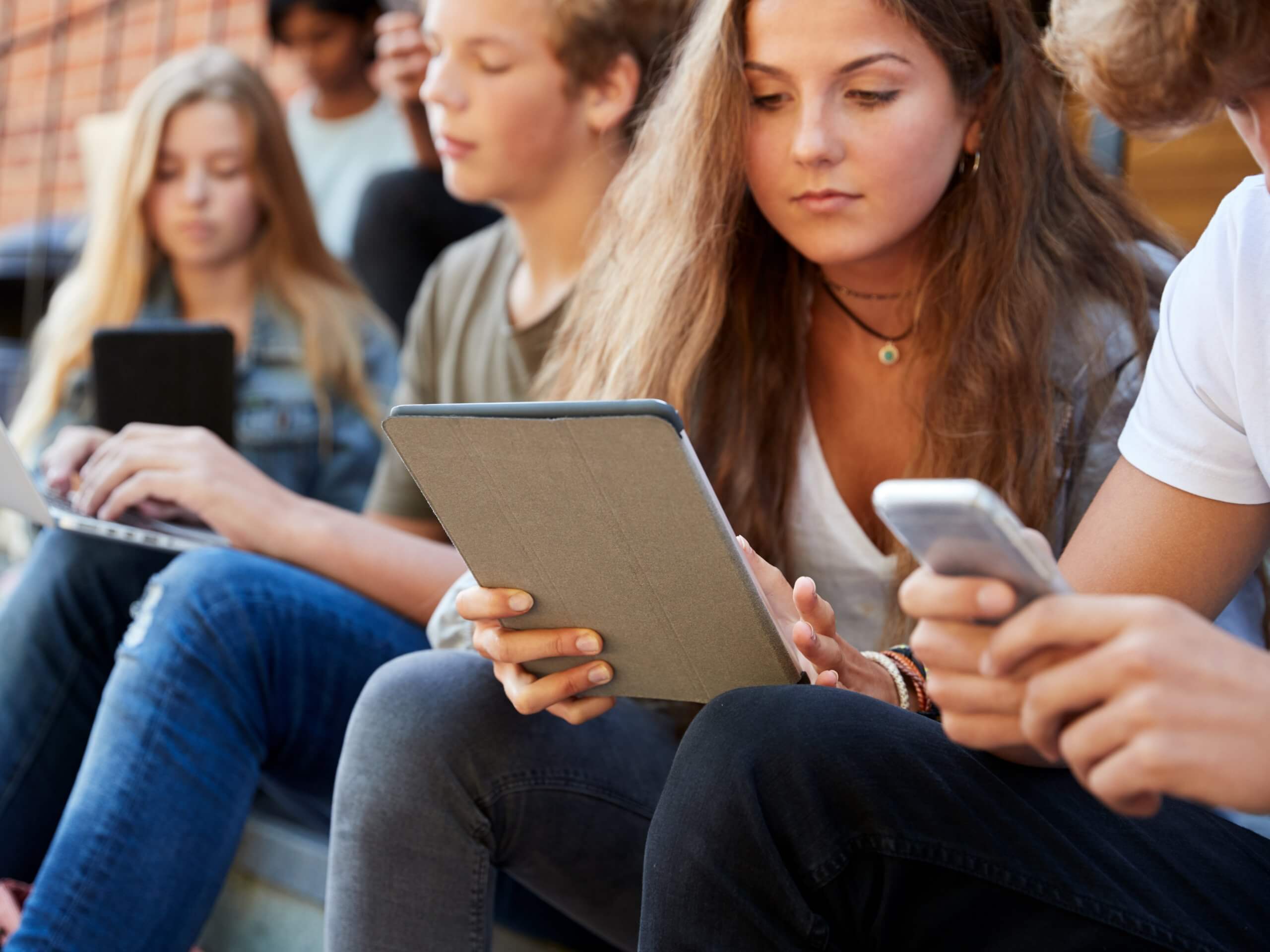
Want to show your students #BodyKindOnline content?
If you’re an educator looking to support young people with their body image on social media, register for Body Kind Schools (from April) to access a Body Kind Online lesson plan, featuring the above video, to use with secondary school students.
Get involved with #BodyKindOnline
Download and Share
Help us support the one million plus Australians living with eating disorders and body image concerns by making a donation.
Butterfly is an independent not-for-profit organisation. Every dollar raised helps fund our critical treatment, recovery, prevention and support programs.
Got a question? Want to arrange an event? Need Support?
Get in touch with our team.
Butterfly Foundation National Helpline
1800 ED HOPE (1800 33 4673)
support@butterfly.org.au
Media Enquiries
Emma Bedson – Butterfly Account Director, Edelman
0432 904 035
butterflyPR@edelman.com
Alex Cowen – Butterfly Communications Manager
Fundraising and Events
elizabeth.herd@butterfly.org.au
Share Your Story



















